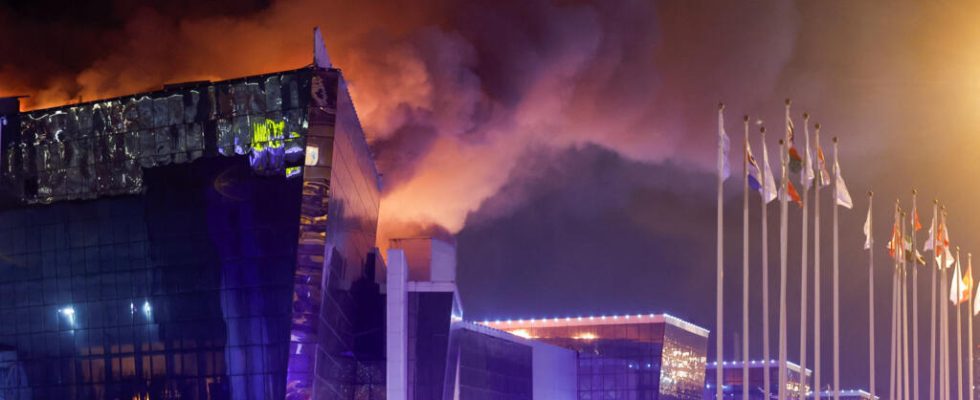According to Russian authorities, four Tajiks committed the attack on Friday evening March 22 during a show at Crocus City Hall, in the suburbs of Moscow. They are said to have killed at least 133 people in this attack claimed by the Islamic State organization. The Amaq news agency, linked to the Islamic State, published images of the massacre in which the terrorists can be heard shouting “ Allahu Akbar “. This new attack once again draws attention to Central Asia, a region affected by radical Islam and terrorism.
2 mins
With our regional correspondent, Régis Genté
It is a branch of the Islamic State, known as Khorasan, EI-K, which claimed responsibility for the attack on Crocus City Hall. This is a branch of the Islamic State in Afghanistan, founded in 2015.
It is made up of Afghans, Pakistanis, but also Central Asians, Tajiks and Uzbeks in particular.
Also listenAttack in Moscow: “Russia has been a target for Islamist networks for a very long time”
Muslim blood on Moscow’s hands?
She seems very active in Russia lately. This led to several operations by Russian forces against them, notably in Ingushetia at the beginning of March, where six Islamists were killed.
EI-K accuses the Kremlin of having Muslim blood on its hands in Afghanistan, Chechnya and Syria.
Other nationals of the former Soviet republics of Central Asia have carried out terrorist acts in Russia in recent years, such as a young ethnic Uzbek from Kyrgyzstan who carried out a bomb attack in the St. Petersburg metro in 2017.
He, like thousands of others who joined the ranks of the Islamic State in Syria and Iraq in the 2010s, was recruited from among the more than 5 million Central Asian labor migrants settled in Russia.
Read alsoMoscow attack: Putin evokes Ukraine, which refutes any role in the killing claimed by ISIS
